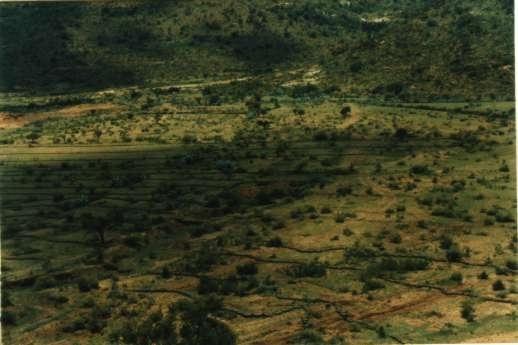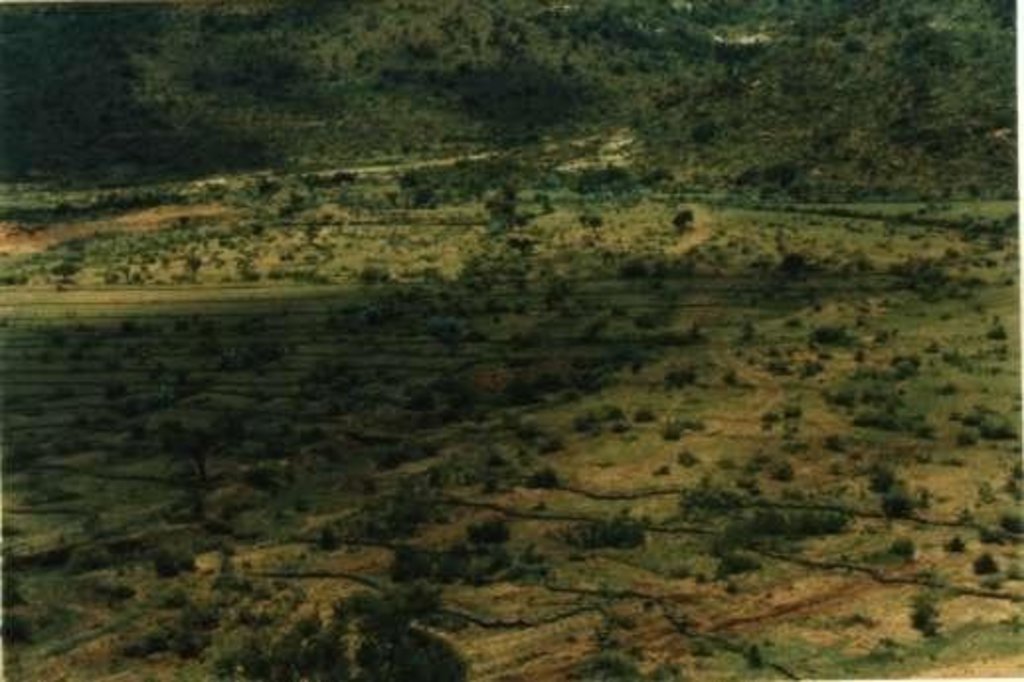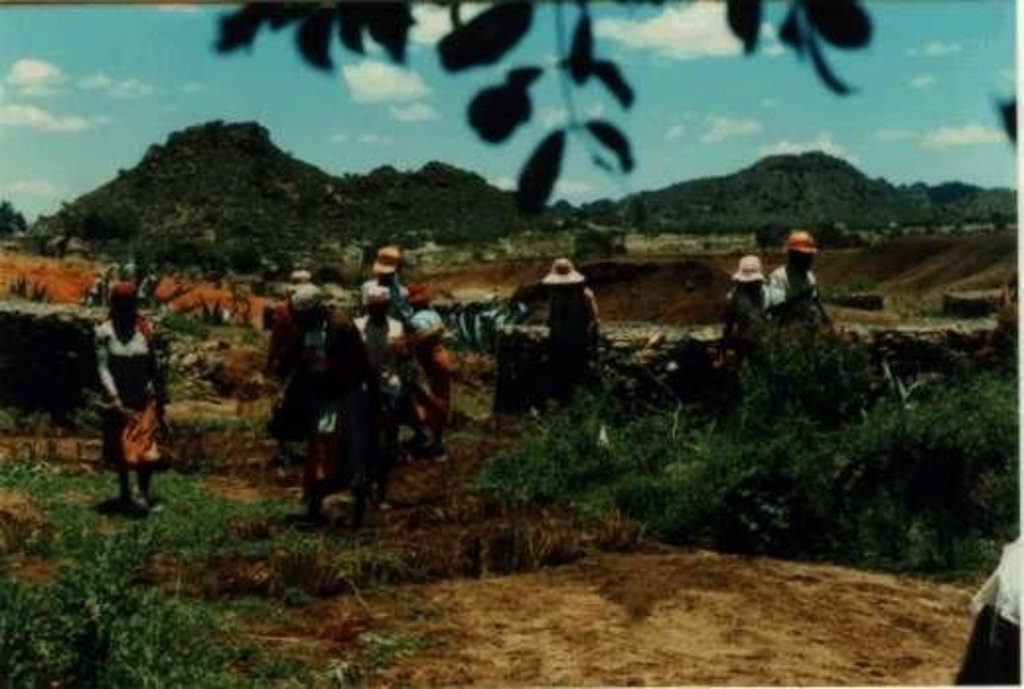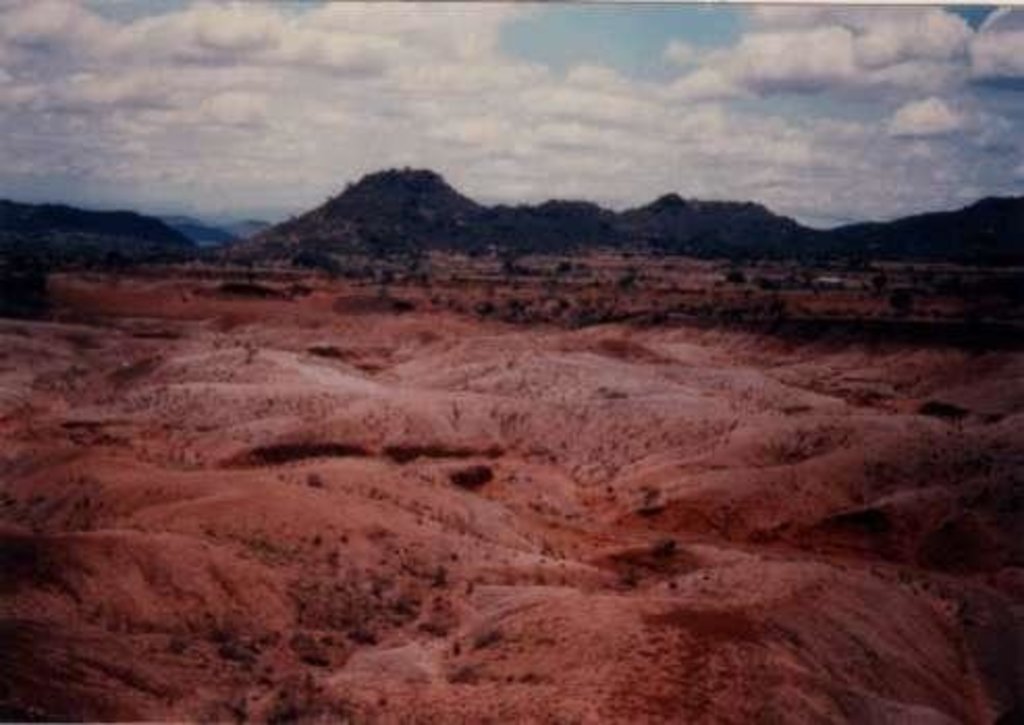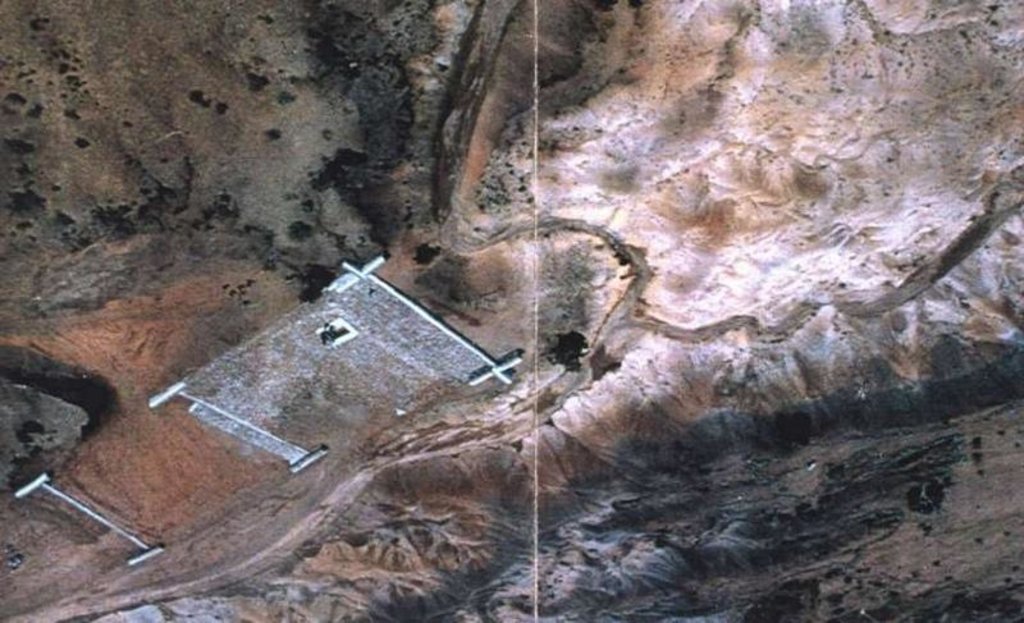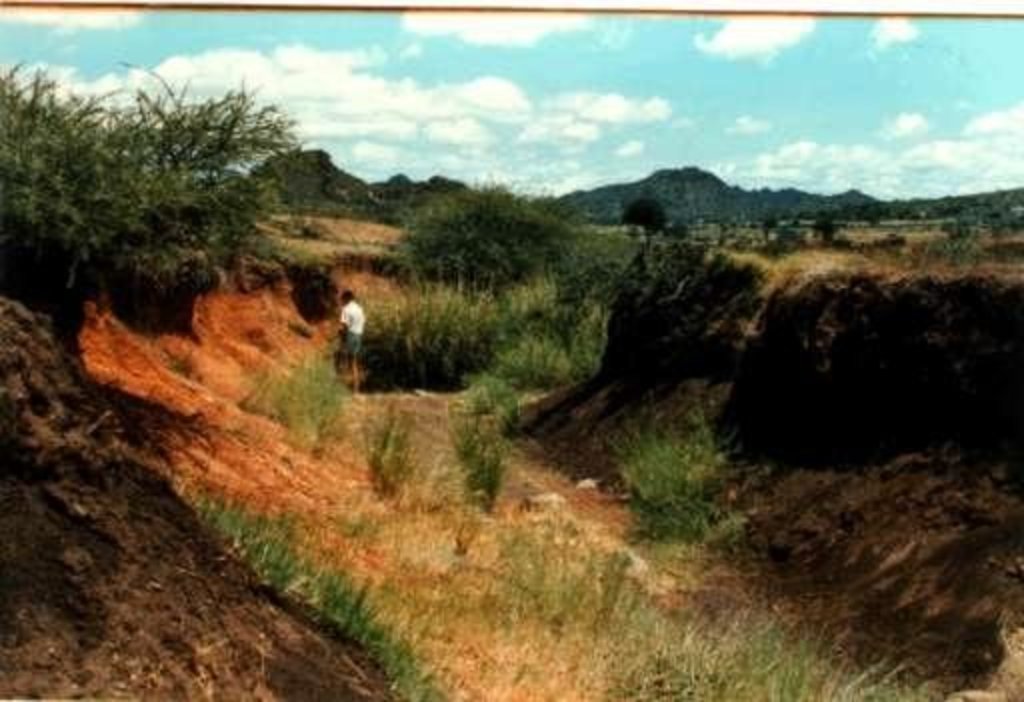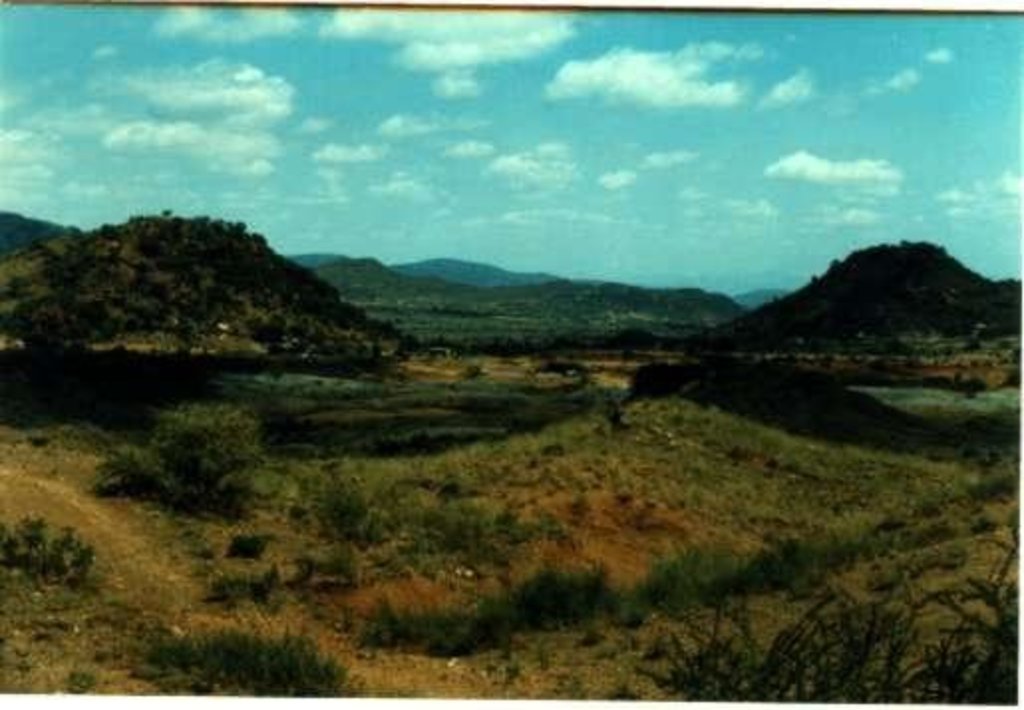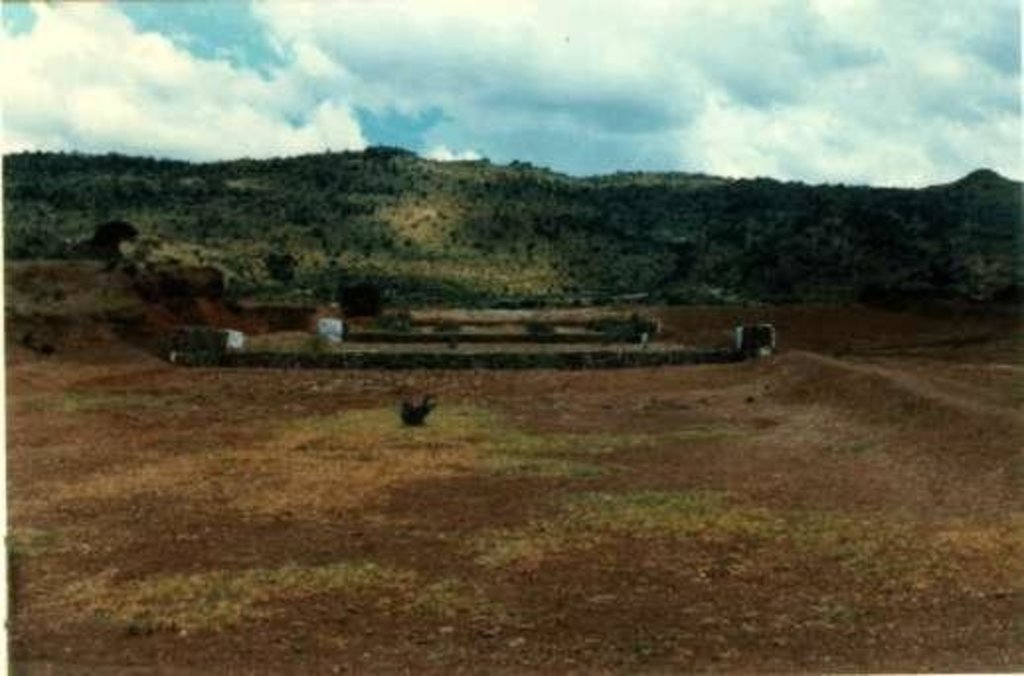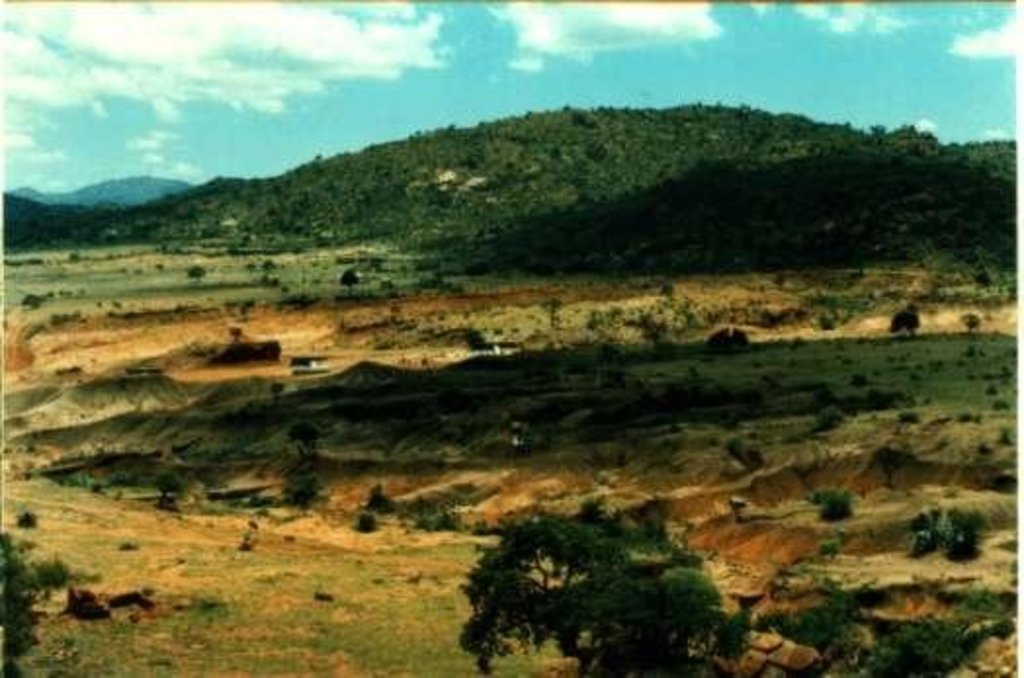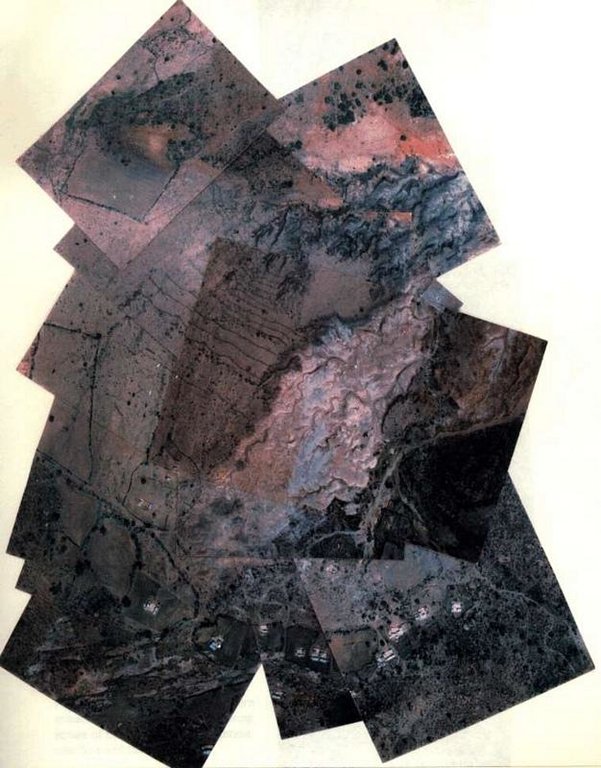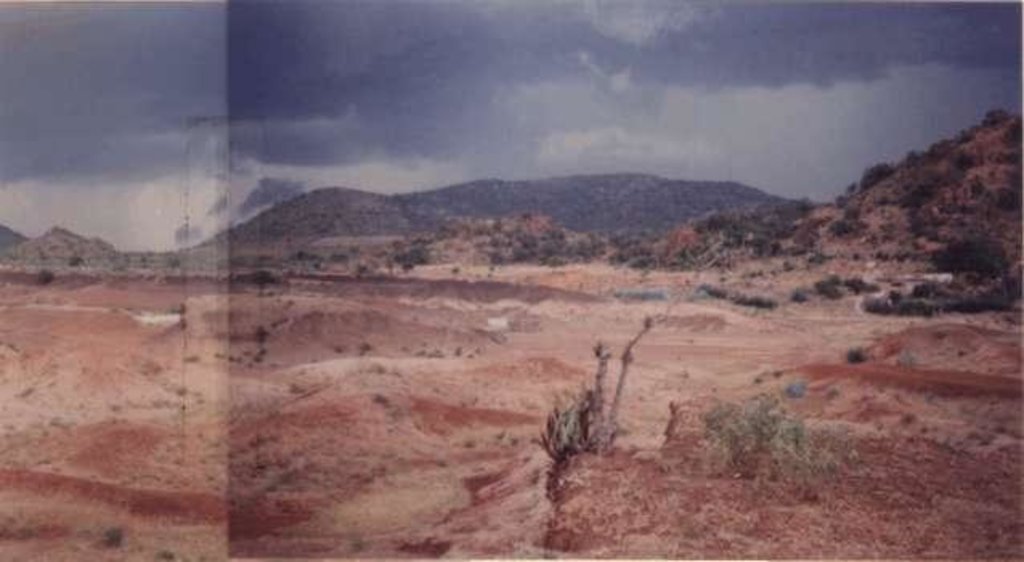Old Motor Tyre Contours [南非]
- 创建:
- 更新:
- 编制者: Andrei Rozanov
- 编辑者: –
- 审查者: David Streiff
technologies_1368 - 南非
查看章节
全部展开 全部收起1. 一般信息
1.2 参与该技术评估和文件编制的资源人员和机构的联系方式
SLM专业人员:
Cujisi K.
UNIN
Van der Walt Isac
Forestry technician:
Voster T.
Department Water Affairs & Forestry, Groblersdal, South Africa
南非
有助于对技术进行记录/评估的机构名称(如相关)
University of Stellenbosch (University of Stellenbosch) - 南非有助于对技术进行记录/评估的机构名称(如相关)
United Nations Institute for Namibia (UNIN) - 纳米比亚有助于对技术进行记录/评估的机构名称(如相关)
Department of Water Affairs and Forestry (DWAF) - 南非1.3 关于使用通过WOCAT记录的数据的条件
(现场)数据是什么时候汇编的?:
06/12/1995
编制者和关键资源人员接受有关使用通过WOCAT记录数据的条件。:
是
2. SLM技术的说明
2.1 技术简介
技术定义:
Old motor tyres and/or vegetation along contours.
2.2 技术的详细说明
说明:
The site of Geen Einde is typical of many areas in Lebowa: a large gully approximately 200 m wide and 10 m deep in places with semi-eroded pedestals remaining. Flood waters from the mountain meanders causes further gouging of the sides of the pedestals. Tributary gullies have formed in the highly erodible soil (high clay content) adjacent to the main gully. Signs of old contour bunds indicate that the land was cultivated in the past.
1. An earth silt dam was mechanically constructed across the main erosion gully.
2. Several gabion structures were constructed in the minor gullies.
3. Vetiver grass was planted in the silt to act as nursery material for future planting.
4. Old motor tyres were laid on a level contour above the minor gullies to harvest water.
5. Several species of indigenous trees were planted in the gullies and along the rows of tyres.
6. Two Agave species, local aloes and vetiver grass were planted along level contours.
7. Agave was planted along the edges of the gullies.
8. Shallow gullies were stabilised with old tyres and Agave.
9. Couch grass (Cynodon dactylon) was planted at a few places in the gullies and along the rows of tyres.
The main reason for these actions was to reduce the water velocity.
2.3 技术照片
2.5 已应用该技术的、本评估所涵盖的国家/地区/地点
国家:
南非
区域/州/省:
Limpopo Province
有关地点的进一步说明:
Sekhukhunenland
2.6 实施日期
如果不知道确切的年份,请说明大概的日期:
- 不到10年前(最近)
2.7 技术介绍
详细说明该技术是如何引入的:
- 在实验/研究期间
注释(项目类型等):
Having read about the success achieved by placing stone barriers on a level contour in other parts of Africa, but also being aware that the process is slow and laborious and dependent on the availability of stones, the thought come to mind to use old motor tyres instead.
First in the area (my original idea).
3. SLM技术的分类
3.1 该技术的主要目的
- 减少、预防、恢复土地退化
3.2 应用该技术的当前土地利用类型
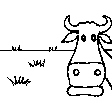
牧场
粗放式放牧场:
- 半游牧/游牧
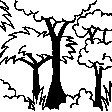
森林/林地
(半天然)天然森林/林地:
- 选伐
- 皆伐
产品和服务:
- 薪材
- 其它森林产品
- 放牧/啃牧
注释:
Major land use problems (compiler’s opinion): Severe environmental degradation (less graze cover over grazing, considerable silt in the river going into Olifants river a main resource for Kruger National Park, below gabion construction were silted up in one year (some even in one rainstorm).
Major land use problems (land users’ perception): Poverty, land tenure free range for the whole community
Semi-nomadism / pastoralism: Yes
Grazingland comments: The area was not fenced off at all.
Selective felling of (semi-) natural forests: Yes
Clear felling of (semi-)natural forests: one of the reason for erosion
Problems / comments regarding forest use: So far only indigenous trees have been planted, but there are many exotic species that can also be investigated. For example, the carob can be tried as a commercial crop, the mulberry as a fodder and fruit crop.
Forest products and services: fuelwood, grazing / browsing, other forest products / uses (honey, medical, etc.)
Type of grazing system comments: The area was not fenced off at all.
Constraints of settlement / urban: scattered
3.3 有关土地利用的更多信息
每年的生长季节数:
- 1
具体说明:
Longest growing period in days: 210
3.4 该技术所属的SLM组
- 横坡措施
- 集水
3.5 技术传播
具体说明该技术的分布:
- 均匀地分布在一个区域
如果该技术均匀地分布在一个区域上,请注明覆盖的大致区域。:
- 0.1-1 平方千米
注释:
Total area covered by the SLM Technology is 0.1 km2.
Green Einde is a tribal area in Sekhukhuneland, which is one of the most severely degraded areas in the Northern Province. It is mainly mountainous, with numerous fertile valleys draining into the Oilfants river, one of the main rivers leading into the Kruger National Park.
Sekhukhuneland is severely degraded. A soil degradation survey done of the former Homeland, Lebowa, by satellite remote sensing in 1993, revealed that in Sekhukhuneland alone approximately 16800ha has become an erosion gully, or bare soil, with little or no vegetation.
This means that 3360 potential farmers have effectively been deprived of 5ha each.
3.6 包含该技术的可持续土地管理措施
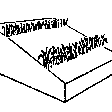
植物措施
- V2:草和多年生草本植物
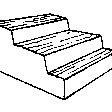
结构措施
- S5:大坝、集水斗、水池
注释:
Main measures: structural measures
Secondary measures: vegetative measures
3.7 该技术强调的主要土地退化类型

土壤水蚀
- Wt:表土流失/地表侵蚀
- Wg:冲沟侵蚀/沟蚀
3.8 防止、减少或恢复土地退化
具体数量名该技术与土地退化有关的目标:
- 防止土地退化
- 减少土地退化
注释:
Secondary goals: mitigation / reduction of land degradation
4. 技术规范、实施活动、投入和成本
4.2 技术规范/技术图纸说明
Technical knowledge required for field staff / advisors: moderate
Technical knowledge required for land users: low
Main technical functions: improvement of ground cover, increase in organic matter, water harvesting / increase water supply
Secondary technical functions: increase of infiltration, increase / maintain water stored in soil
Vegetative measure: contour
Vegetative material: O : other
Vertical interval within rows / strips / blocks (m): 10cm
Vegetative measure: contour
Vegetative material: O : other
Vertical interval within rows / strips / blocks (m): 1m
Vegetative measure: contour
Vegetative material: O : other
Vertical interval within rows / strips / blocks (m): 20cm
Vegetative measure: contour
Vegetative material: O : other
Trees/ shrubs species: Agave sisalana & Agave mexicane
Grass species: Vetiver
Other species: Acacia tortilis, Portulacaria afra
Slope (which determines the spacing indicated above): 1.00%
If the original slope has changed as a result of the Technology, the slope today is (see figure below): 1.00%
Gradient along the rows / strips: 1.00%
Retention/infiltration ditch/pit, sediment/sand trap
Spacing between structures (m): 10-30
Depth of ditches/pits/dams (m): 30cm
Width of ditches/pits/dams (m): 50cm
Length of ditches/pits/dams (m): 200m
Construction material (other): old motor tyres
Lateral gradient along the structure: 1%
For water harvesting: the ratio between the area where the harvested water is applied and the total area from which water is collected is: 1:30
Vegetation is used for stabilisation of structures.
Control / change of species composition
4.3 有关投入和成本计算的一般信息
其它/国家货币(具体说明):
rand
注明美元与当地货币的汇率(如相关):1美元=:
6.0
注明雇用劳工的每日平均工资成本:
4.00
4.4 技术建立活动
| 活动 | 措施类型 | 时间 | |
|---|---|---|---|
| 1. | transplanting Vetiver and trees | 植物性的 | before rains - ongoing |
| 2. | planting Agave | 植物性的 | all year round |
| 3. | 1. placing motor tyres and earth | 结构性的 | ok-ap (rainseason) |
4.5 技术建立所需要的费用和投入
| 对投入进行具体说明 | 单位 | 数量 | 单位成本 | 每项投入的总成本 | 土地使用者承担的成本% | |
|---|---|---|---|---|---|---|
| 劳动力 | Labour | ha | 1.0 | 83.35 | 83.35 | |
| 设备 | Machine use | ha | 1.0 | 11.0 | 11.0 | |
| 植物材料 | Trees | ha | 1.0 | 888.0 | 888.0 | |
| 其它 | tyre transport | ha | 1.0 | 138.0 | 138.0 | 100.0 |
| 技术建立所需总成本 | 1120.35 | |||||
注释:
Duration of establishment phase: 36 month(s)
4.6 维护/经常性活动
| 活动 | 措施类型 | 时间/频率 | |
|---|---|---|---|
| 1. | pruning / trimming | 植物性的 | need /periodically |
4.8 影响成本的最重要因素
描述影响成本的最决定性因素:
The main expense is transporting the tyres which depends on the distance travelled.
It is obvious that any increase in the cost of labour will have a market impact on final costs.
5. 自然和人文环境
5.1 气候
年降雨量
- < 250毫米
- 251-500毫米
- 501-750毫米
- 751-1,000毫米
- 1,001-1,500毫米
- 1,501-2,000毫米
- 2,001-3,000毫米
- 3,001-4,000毫米
- > 4,000毫米
农业气候带
- 半干旱
thunderstorm
5.2 地形
平均坡度:
- 水平(0-2%)
- 缓降(3-5%)
- 平缓(6-10%)
- 滚坡(11-15%)
- 崎岖(16-30%)
- 陡峭(31-60%)
- 非常陡峭(>60%)
地形:
- 高原/平原
- 山脊
- 山坡
- 山地斜坡
- 麓坡
- 谷底
垂直分布带:
- 0-100 m a.s.l.
- 101-500 m a.s.l.
- 501-1,000 m a.s.l.
- 1,001-1,500 m a.s.l.
- 1,501-2,000 m a.s.l.
- 2,001-2,500 m a.s.l.
- 2,501-3,000 m a.s.l.
- 3,001-4,000 m a.s.l.
- > 4,000 m a.s.l.
5.3 土壤
平均土层深度:
- 非常浅(0-20厘米)
- 浅(21-50厘米)
- 中等深度(51-80厘米)
- 深(81-120厘米)
- 非常深(> 120厘米)
土壤质地(表土):
- 细粒/重质(粘土)
表土有机质:
- 低(<1%)
如有可能,附上完整的土壤描述或具体说明可用的信息,例如土壤类型、土壤酸碱度、阳离子交换能力、氮、盐度等。:
Soil depth on average: Also shallow
Soil fertility is low - very low
Soil drainage / infiltration is poor
Soil water storage capacity is low - medium
5.6 应用该技术的土地使用者的特征
生产系统的市场定位:
- 生计(自给)
非农收入:
- 低于全部收入的10%
相对财富水平:
- 非常贫瘠
- 贫瘠
说明土地使用者的其他有关特征:
Population density: 10-50 persons/km2
Annual population growth: 0.5% - 1%
(other income (e.g. bottle store)).
Off-farm income specification: Pension very important
Market orientation of production system: Probable, no sure if on market
5.7 应用该技术的土地使用者拥有或租用的平均土地面积
- < 0.5 公顷
- 0.5-1 公顷
- 1-2 公顷
- 2-5公顷
- 5-15公顷
- 15-50公顷
- 50-100公顷
- 100-500公顷
- 500-1,000公顷
- 1,000-10,000公顷
- > 10,000公顷
5.8 土地所有权、土地使用权和水使用权
土地所有权:
- 社区/村庄
土地使用权:
- 自由进入(无组织)
6. 影响和结论性说明
6.1 该技术的现场影响
社会经济效应
生产
饲料生产
饲料质量
木材生产
生产区域
注释/具体说明:
stabilised gullies can be used for production, in Lesotho such gullies are allocated
收入和成本
农业收入
经济差异
工作量
其它社会经济效应
initial cost
注释/具体说明:
relatively cheap method using old tyres and ripper, the main expense is transporting the tyres
社会文化影响
社区机构
SLM/土地退化知识
冲突缓解
rehabilitation can take place without denying people/animal
生态影响
水循环/径流
水的回收/收集
地表径流
SLM之前的数量:
50
SLM之后的数量:
10
多余水的排放
土壤
土壤水分
土壤覆盖层
土壤流失
SLM之前的数量:
8
SLM之后的数量:
2
其它生态影响
soil fertility
biodiversity
ground level
注释/具体说明:
Not sure if reason is technology
6.2 该技术的场外影响已经显现
下游洪水
6.4 成本效益分析
技术收益与技术建立成本相比如何(从土地使用者的角度看)?
短期回报:
积极
长期回报:
积极
技术收益与技术维护成本/经常性成本相比如何(从土地使用者的角度看)?
短期回报:
中性/平衡
长期回报:
中性/平衡
6.5 技术采用
注释:
There is a moderate trend towards spontaneous adoption of the Technology
Comments on adoption trend: Interest is increasing.
6.7 该技术的优点/长处/机会
| 土地使用者眼中的长处/优势/机会 |
|---|
| Easy to implement and benefits from food, fuel and fodder. |
| Improved graze cover. |
| Improved trees cover. |
| Improved trees cover. |
| 编制者或其他关键资源人员认为的长处/优势/机会 |
|---|
|
Capture water and sediment for growth of plants. How can they be sustained / enhanced? More of the same technology. |
|
Improved graze cover. How can they be sustained / enhanced? More of the same technology. |
| Improved trees cover. |
| Improved water management. |
| Improved biodiversity. |
6.8 技术的弱点/缺点/风险及其克服方法
| 土地使用者认为的弱点/缺点/风险 | 如何克服它们? |
|---|---|
| Paths may be blocked. | Put more soil on the tyres |
| Transport cost for tyres. |
| 编制者或其他关键资源人员认为的弱点/缺点/风险 | 如何克服它们? |
|---|---|
| Transport costs of tyres. | Selesert sponsorship. |
| Tyres all over the area may be unsightly. | Cover the tyres with soil and vegetation. |
7. 参考和链接
7.2 参考可用出版物
标题、作者、年份、ISBN:
Progress Report. Feb-94.
可以从哪里获得?成本如何?
C.W. Spies
链接和模块
全部展开 全部收起链接
无链接
模块
无模块


